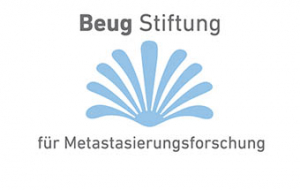Lisa Sevenich, Universitätsklinikum Tübingen
Project 2019
Dissecting the complex interplay between innate and adoptive immunity in brain metastasis for improved tumor microenvironment targeted- or immunotherapies
The development of immunotherapies has recently revolutionized treatment options for cancer patients. However, response rates vary among distinct tumor types and individual patients. Moreover, metastases often show lower response rates compared to primary tumors. The microenvironment represents a critical factor that determines disease progression and the outcome of therapeutic intervention. Given the immune-privileged status of the central nervous system (CNS), brain metastases (BrM) represent a particularly challenging entity for successful immunotherapy. We found that even though BrM induce the recruitment of myeloid and lymphoid cells into the CNS, the environment poses an immune-suppressive pressure to prevent tissue damaging inflammation. Consequently, strategies that aim to reactivate T cell function in the CNS will be blunted by immune suppressive functions of myeloid cells. Hence, immune-modulatory strategies that transiently revoke the suppressive milieu in BrM are expected to synergize with immunotherapy. The Beug Foundation Metastasis Prize will allow us to perform comprehensive analyses of the complex interplay between innate and adoptive immunity in BrM. Based on the insights from our initial analyses we will test different combination therapies in preclinical BrM models with the aim to locally block immune-suppression while promoting the effective anti-tumor responses with minimal risk to induce neurotoxic tissue damage.
Report 2021:
Pre-clinical and clinical cancer research led to impressive progress in the development of effective therapies for various primary cancer types. However, prolonged survival of cancer patients leads to increased risk of metastatic spread. Metastatic colonization of the central nervous system is associated with significantly impaired quality of life and poor prognosis. Unfortunately, the majority of brain metastases patients show low response rates even upon multimodal intervention therapies such as chemo- or radiotherapy in combination with targeted- or immunotherapies. The paucity in treatment success can at least in part be attributed to the highly complex tumor microenvironment (TME) in brain metastases that contains brain-resident cell types as well as myeloid and lymphoid cells that are recruited from the systemic immune system. We proposed that detailed insight into the complex cellular interplay within the TME is required to develop rational combination therapies that are specifically tailored to overcome tissue-specific limitations to treatment success in CNS tumors. With support of the Metastasis Prize awarded by Beug Foundation we were able to perform detailed analyses of the cellular and molecular identity of tumor-infiltrating T cells in breast-to-brain metastasis models. Characterization of T cell populations revealed clonal expansion indicative of anti-tumor T cell responses. However, T cell depletion did not change tumor incidence and progression and T cell re-activation by immune checkpoint inhibition was ineffective to halt tumor growth. Further analyses revealed that monocyte-derived macrophages that are recruited to brain metastases play a critical role in suppressing T cell immunity. Based on the data obtained with the help of the Beug Stiftung, we were able to secure additional funding from the German Cancer Aid to further explore different aspects of tumor immunology in brain metastases. Our longterm goal is to exploit this knowledge for the development of novel therapeutic avenues to improve treatment options and quality of life of brain metastases patients. In this context, we focus on TME-targeted therapies that locally lift the immune suppressive pressure in brain metastatic lesions to allow sufficient reactivation of specific anti-tumor T cell responses and at the same time prevent the induction of excessive neuroinflammation to protect adjacent neuronal tissue.

